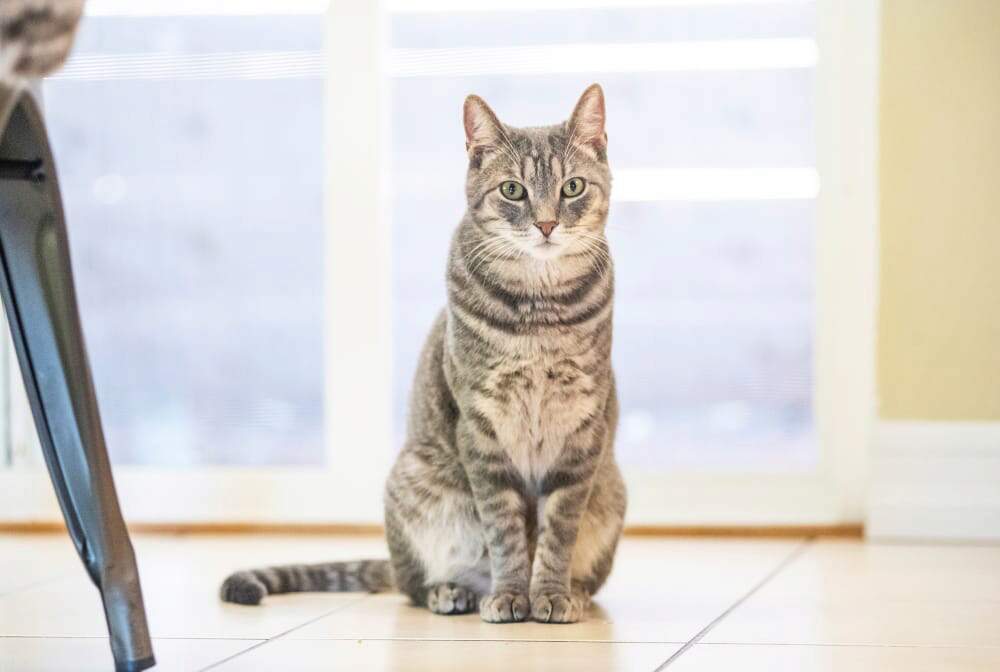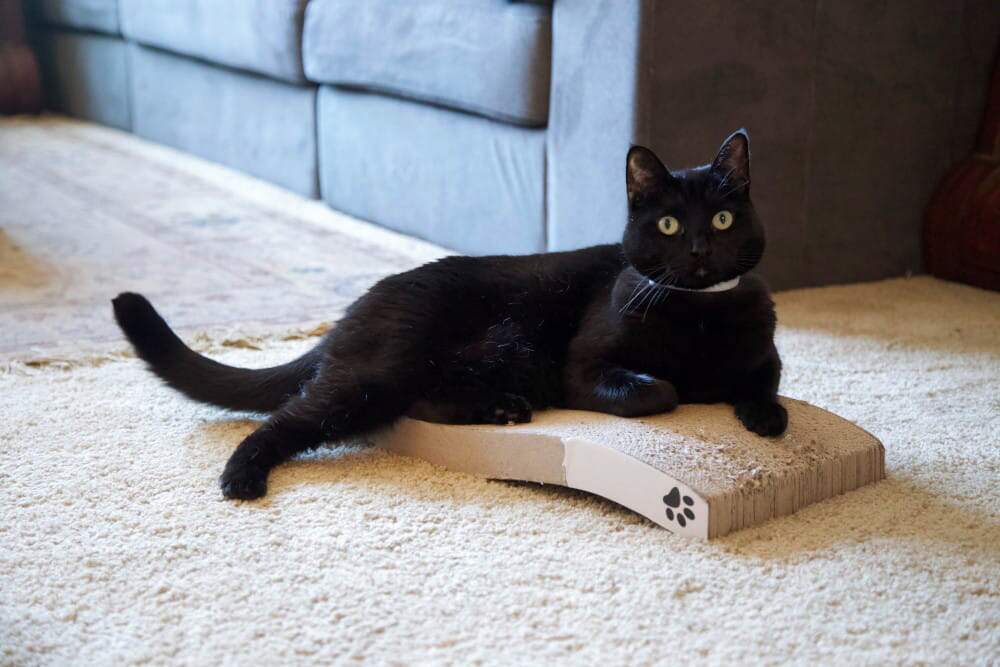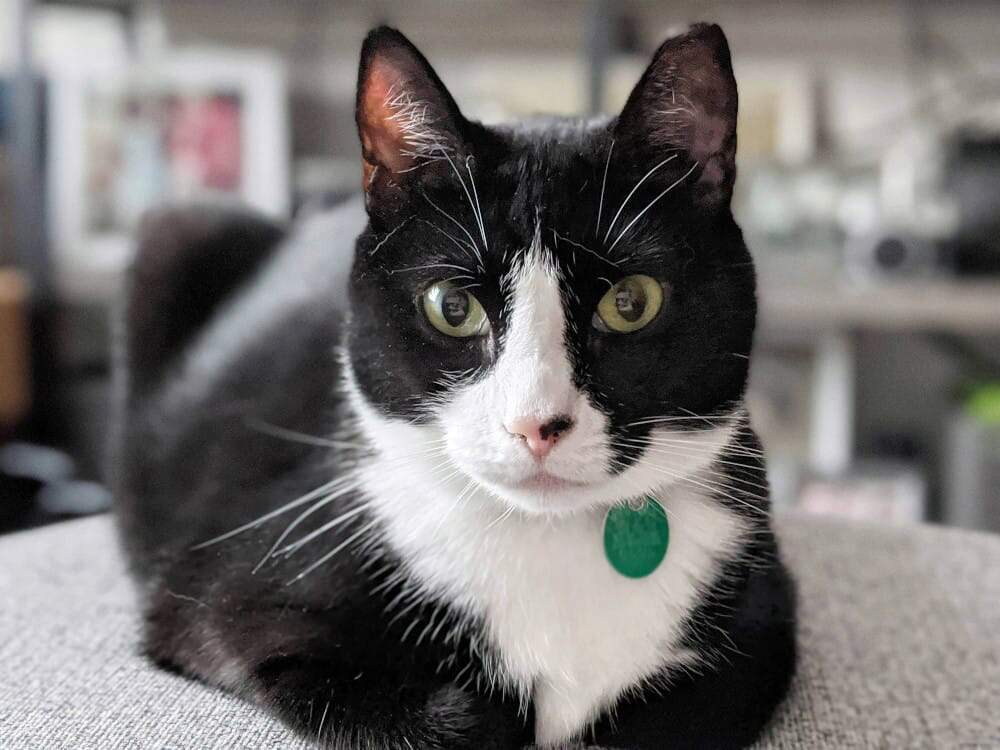Artemis Gets a Good Night's Rest
Photo Courtesy of Nicholas Wuest
When Nicholas Wuest was growing up, a cat of his own wasn't in the cards. His mom was terribly allergic, so his family had dogs instead. Owning a cat became an obsession. “I just like their low maintenance, and I've always liked their personalities," recalls Wuest.
When he was a teenager with a rebellious streak, he saw a Craigslist ad for a cat in need of a home. He adopted it. His mom wasn't pleased. Now in his 20s, the preschool teacher studying to be a school counselor in northern Kentucky decided to keep his mom's needs in mind when it came time to adopt another cat. He researched hypoallergenic breeds and decided on the Sphynx cat. The regal, hairless breed developed in Canada through selective breeding in the 1960s is considered a good option for someone allergic to cat dander.
“People have reactions to them, but only when you're in contact with the cat. Luckily my mom is not allergic to the saliva, so she wasn't allergic to them," says Wuest.
People often develop cat allergies later in life, and in some cases, natural remedies can help. Wuest adopted his first Sphynx cat, Artemis, from a breeder in 2014. Wuest soon realized the social cat with grey spots and crystal blue eyes needed a friend. Wuest found Athena from a different breeder that same year, and they became fast friends.
“Sphynx cats are more like having a dog; they are so personable. They want to be the center of attention," says Wuest.
Artemis will play fetch, and Athena, dark grey with gold eyes and light as a feather (she only weighs five pounds), loves nothing more than jumping up and riding around on her pet parent's shoulders. Athena has a window seat that suctions to the window where she often sits and watches the birds. Active Artemis loves playing with his little mouse toy, fitting for a cat named after the goddess of the hunt. Artemis and Athena are pampered indoor kitties.
“I would say I have too much of a connection with my cats to let them be outside. Not knowing where they are at all times would stress me out," says Wuest.
And there are practical reasons the cats stay indoors. Sphynx cats can get sunburns and have very little protection from the cold. Wuest does have some rules. He says if he let Artemis, his “affectionate lover boy," sleep in his room, he would try to sleep on his face.
“He's very content when he's with you. He's like that with everybody. He wants to be right on top of you."
So Wuest can get some shuteye, the fur babies sleep in a separate room, which Wuest monitors with a camera. While Wuest says Artemis was content with the sleeping arrangement for years, he began to exhibit signs of separation stress last fall. Artemis started meowing excessively, a sign of stress in cats, for extended periods while separated from Wuest in the night.
Wuest believes his changing schedule was the culprit. Wuest taught online from March until August 2020. Now he's back to teaching in-person full time. Pet parents going back to work following shelter-in-place orders due to COVID-19 can be a difficult transition for pets.
“That's a pretty significant time to be home all day, every day. He got used to it. Of course, I would always want my pets to be as comfortable as they can be. I would never want to stress them out or put them into a stressful situation," says Wuest.
To make Artemis feel more comfortable, Wuest began using the Comfort Zone Calming Collar and the Comfort Zone Multi-Cat Calming Diffuser. The diffuser releases a drug-free vapor that mimics the pheromones a cat releases to indicate the area is safe and secure. (It's kind of like sending a signal in the cat's language to let him know he is safe and can relax.)
Wuest started using Comfort Zone products around the holidays and noticed results right away. Artemis stopped meowing and pacing throughout the night, and he exhibited the calmer, more dog-like characteristics, a hallmark of the Sphynx breed, that Wuest was so used to seeing.
“I love to come home and be greeted by them. They stand and wait at the garage door when I come in—as a dog would. It's nice to feel you have somebody to come home to," says Wuest.
If his cats are content, says Wuest, then he's content too, and with the help of Comfort Zone products, he sees plenty of happy and well-rested days ahead.




